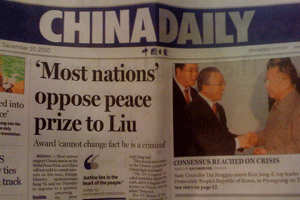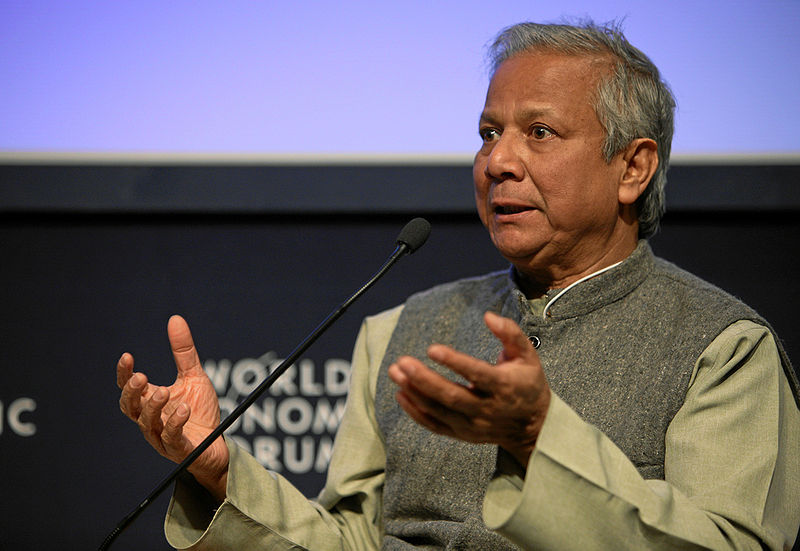
<a href="http://www.flickr.com/photos/mitch-in-wanderlust/5248918054/">Michele Travierso</a>/Flickr
Liu Xiaobo, an imprisoned activist who was awarded this year’s Peace prize for his “long and non-violent struggle for fundamental human rights in China,” is best known for his participation in the 1989 Tiananmen Square protests and penning articles discouraging violence as a tool of pro-democracy Chinese dissidents. But according to his critics, he’s also a fervent supporter of US-led wars.
Last Wednesday, Hong Kong-based professors Barry Sautman and Yan Hairong published a piece in The Guardian arguing that the Western media and Nobel committee have failed to recognize Liu’s support of US war-efforts in Vietnam—and that Liu’s imprisonment “was unnecessary,” because “If Liu’s politics were well-known, most people would not favour him for a prize, because he is a champion of war, not peace.” To support this point, they cite a quote (translated below) from Liu’s 1996 essay, “Lessons From the Cold War“:
The free world led by the US fought almost all regimes that trampled on human rights…The major wars that the US became involved in are all ethically defensible.
Since an English translation of Liu’s essay doesn’t seem to exist, we read his essay in its original Mandarin, but we were unable to locate the quote Sautman and Yan mentioned. Just to be sure, we had another multilingual friend spot-check us, but he couldn’t find it either. Looks like Sautman and Yan broadly misquoted the Nobel prize-winner at best. At worst, they deliberately fabricated his views about US involvement in the Vietnam and Korean Wars. One thing they didn’t mention: Liu’s essay was less concerned with the West’s involvement in the Cold War, and is ultimately more interested in China’s human rights failures [PDF], stating:
It was not the Americans that destroyed Communist authoritarianism, but that was caused by the self-destructive forces of this system’s anti-human nature.














